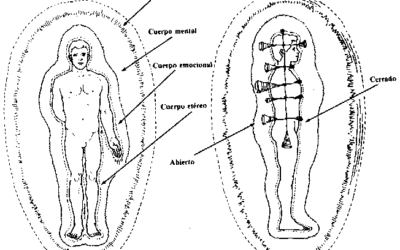The individual with a distrustful structure has had a special grace since childhood and has stood out from others for his intelligence, his fluency, his abilities, talent, people skills, communication skills, etc.
That is to say, he has a personality far superior to the average.
In the family, he occupies a very prominent place, such as, for example, because he is the first-born or the youngest, or he is the only child or the most intelligent among all the siblings, etc.
It can also happen that it is another member of the family who occupies a special place and not him, and then he will envy the position of the other person and try to imitate his behavior to show that he too is special, the best.
In this way, he becomes the center of the family. He perceives that he occupies an important place and this makes, little by little, pride begins to take root in his personality from a very young age.
There is a relationship with a seductive father or mother. He is often the favourite of one of them; preferably he is the right eye of the parent of the opposite sex.
This seduction is aimed at winning over the child, to take the side of the parent he seduces.
The child is excessively loved by that father or mother who longs for her perfect child to satisfy his emotional needs, fantasies, or unfulfilled desires. He is flattered, pampered and protected in excess; he is given all the best, even, if possible, to the detriment of his own parents.
Unconsciously, parents guide the child to the achievement of goals.
The individual with a distrustful structure he begins to realize that he must act actively by doing things and achieving, achievements that are pleasing to the parents and for which he receives appreciation and rewards.
No matter how he feels, how he feels, what really matters is what he achieves and how he does it.
In this way, he understands that in order to obtain positive consideration from his father or mother, he has to learn to repress his emotions and postpone and renounce his interests and desires to satisfy the interests and desires of his parents.
Specially those of the seductive parent, who is the one who protects and supports him, and defends himself from the parent of the same sex, whom he considers as a potential enemy and whom he avoids satisfying because he considers that he does not love him totally.
Thus the child instinctively learns that in order to fit in with that brilliant ideal that his parents have established, he has to please them and conform to doing what they expect of him, in this way he will receive the reward of continuing to be preferred and retain his place of power.
He was esteemed for what he could produce and achieve, more than for himself.
The individual with a distrustful structure learned that the way to receive approval and love was centered on performance that was accompanied by success. For this reason, he decided to do extraordinary things in pursuit of recognition and trying to be admired and loved by everyone.
The idea is to work hard to achieve the leadership role and win. He cannot fail, since he has learned that only winners are worthy of love.
The individual with a distrustful character structure learns to seduce, manipulate and project an image of himself that is not real, which will incorporate the ideal characteristics of a role.
He has created an image based on what he believes he must show to attract the attention of others and lives attached to that image separated from his own identity.
At first he realizes that he is acting, that he is representing out certain behaviors that bring him attention, recognition and approval, but as the years go by he identifies with the roles he plays to get the attention of others and get their objectives.
As a consequence, he loses contact with himself and chooses to be who they expect him to be.
Trying to be himself can be dangerous, because it carries the risk of making mistakes and realizing that he is not as perfect as they think and, therefore, disappointing them, losing the recognition they give him and being betrayed.
In what kinds of situations can the child feel really or symbolically betrayed?
There can be many circumstances that foster the feeling of betrayal, such as: He betrays himself when someone has not fulfilled a promise, an agreement, an expectation, etc.
We can feel betrayed if someone does not fulfill what they have promised us.
Through the very process of growth in which parents usually stop paying so much attention to us.
We can feel betrayed after a process of separation, divorce or death of one of our parents.
Or, perhaps, after the arrival of a new member to the family and now it is he who attracts all the attention of his parents, or when a girl feels that she is left aside by her father due to the arrival of a boy or, on the contrary, by her mother.
Once we become independent, we will continue with the same behavior, until, finally, we decide to transcend the ego to connect with our true identity, with the very essence of the soul.
Extracted from my book The Task of the Soul, if you are interested you can purchase it by clicking on the Amazon link:







